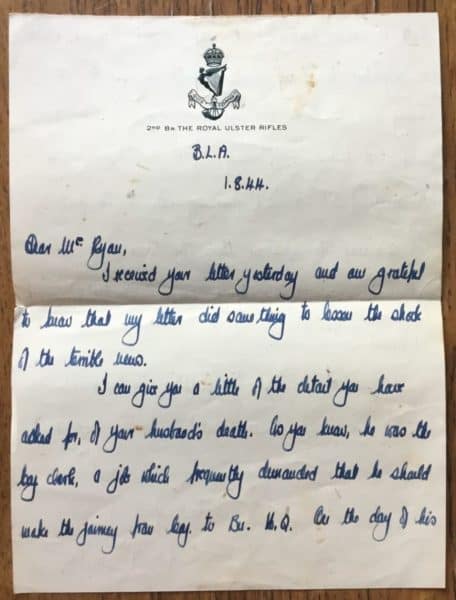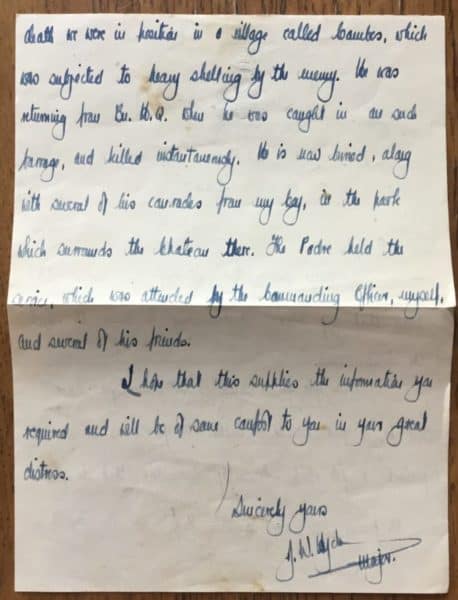Thank you Great Uncle Michael
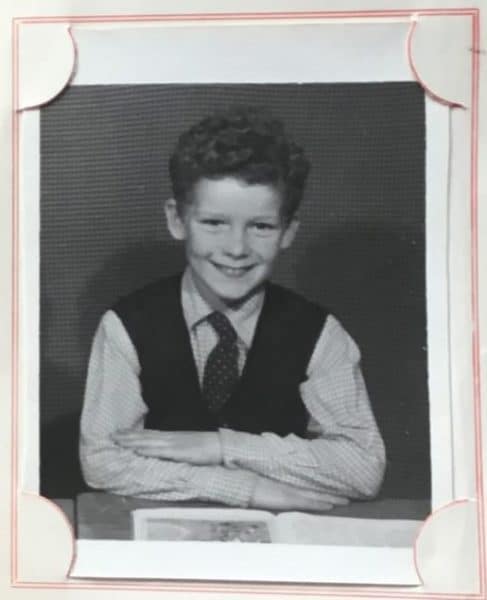
This summer, my father told me about his mother’s brother, Michael Ryan, who served as a rifleman with B Company, 2nd Batallion, Royal Ulster Rifles. My father didn’t have much information although he was able to show me lots of photographs, which fortunately I copied. I have researched my family tree and have information about my father’s father, but not his mother, Michael Ryan’s sister. She was born in Greenock, Scotland. My father says Michael Ryan was born in Tipperary, Ireland. From his army record book, I can see that Michael was a Roman Catholic born on October 10, 1906. He was a labourer when he enlisted in Whitehall on December 12, 1925, aged 19.
The first photograph my father showed me was of Michael Ryan with Field Marshal Montgomery, known as Monty, who was among the most decorated military leaders of World War II. Michael Ryan is the soldier being addressed by Montgomery in this image.
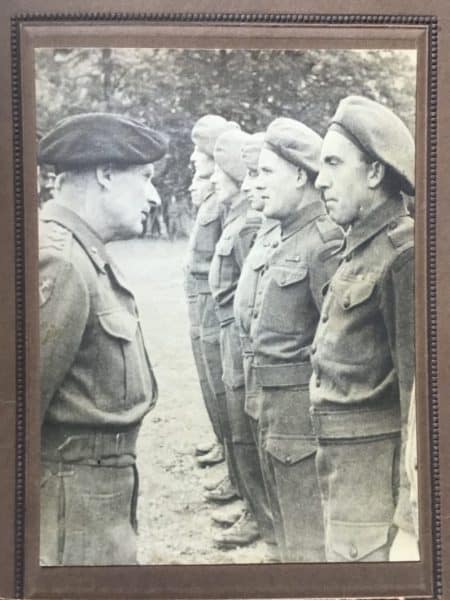
I don’t have any context for this picture but my great uncle (army number 6197005) did, along with others from the 2nd Battalion, receive a Military Medal for “gallant, and distinguished services in action against the enemy during the period 10 May to 1 June 1940.” I’ll be looking into what happened and where for the 2nd Batallion Royal Ulster Rifles during these dates. According to his army record book, the action that led to the medal was in Belgium in 1940.
Below is a photograph of the daily orders detailing Michael Ryan’s medal and his invitation to his investiture at Buckingham Palace on November 4, 1941.
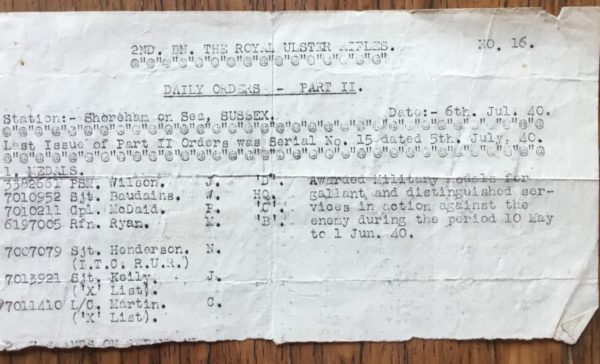
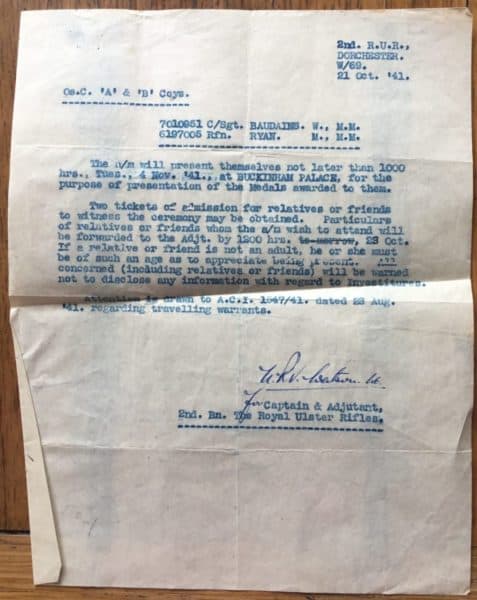
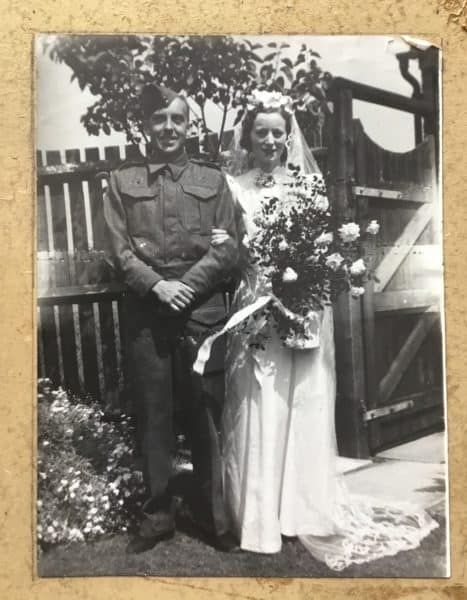
Michael Ryan was married and below is a letter he sent to his wife Kathleen Ryan (nee Kenny), presumably from France. He wrote,
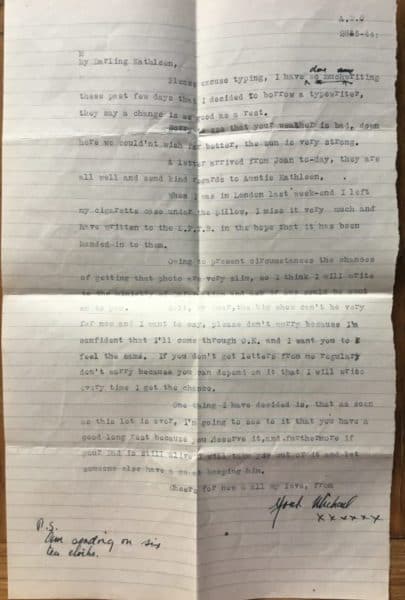
“My Darling Kathleen,
Please excuse typing, I have done so much writing these past few days that I decided to borrow a typewriter, they say a change is as good as a rest. Sorry to see that your weather is bad, down here we couldn’t wish for better, the sun is very strong…
…Well, my Dear, the big show can’t be very far now and I want to say, please don’t worry because I’m confident that I’ll come through O.K. and I want you to feel the same. If you don’t get letters from me regularly don’t worry because you can depend on it that I will write every time I get the chance.
One thing I have decided is, that as soon as this lot is over, I’m going to see to it that you have a good long rest because you deserve it, and furthermore if your Dad is still alive I will take you out of it and let someone else have a go at keeping him.
Cheers for now & all my love, from Your Michael x x x x x x
P.S. Am sending six tea cloths.”
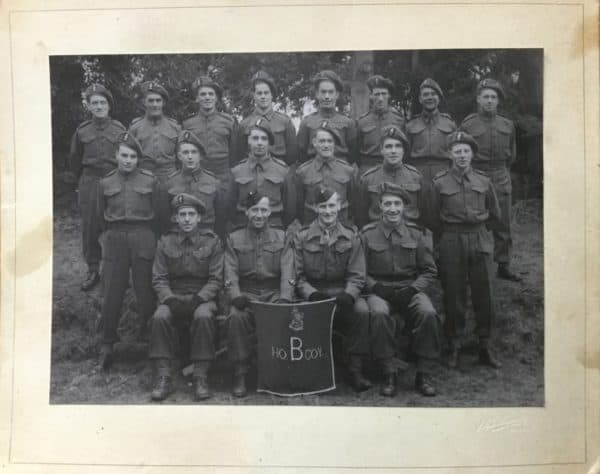
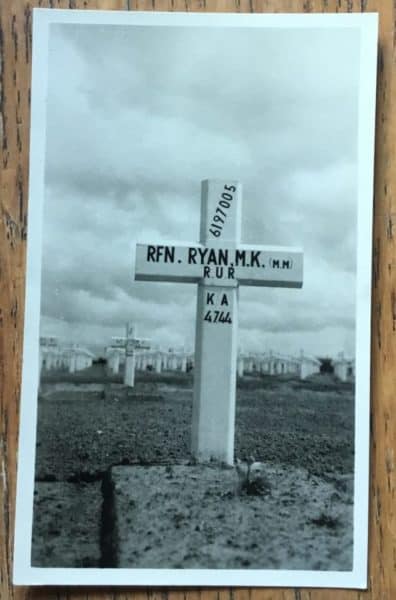
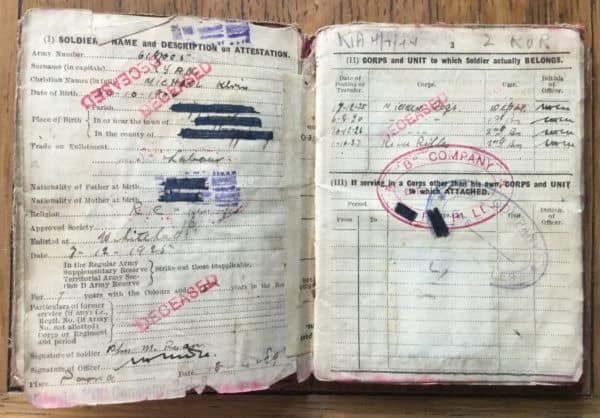
But Michael never did get home to give Kathleen the rest he so clearly thought she deserved. He was a clerk and was killed, instantly, by heavy shelling while making his way to headquarters on July 4, 1944. In the letter written by an army major to Kathleen, I can’t make out the location of his death in a village in France. It seems to begin with B.
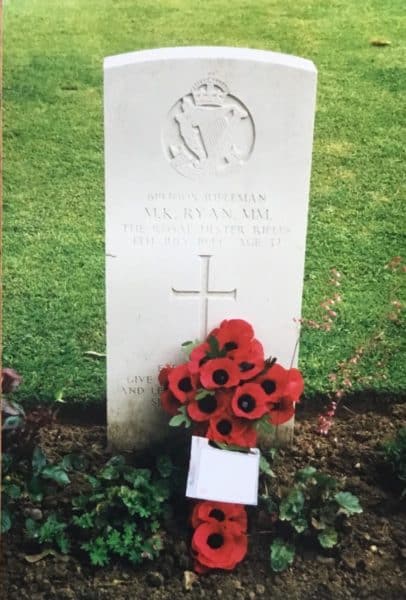
It says in the letter to Kathleen that Michael was buried in a park that surrounds a chateau. A padre held a service for Michael, which was attended by the commanding officer, the major whose name I cannot read but will research, and several of Michael’s friends. I will certainly be going to pay my respects at Michael’s grave.
Dear Michael,
I never knew you, but I thank you.
Thank you from the bottom of my heart for giving your life for the life and freedom I have and that I deeply and truly cherish.
This year, on Remembrance Day, and forever more, I will think of you, just 37 years old, and your Kathleen. Your sacrifice was immeasurable.
I won’t forget you. My great nephew, Riley, wrote a poem for Remembrance Day last year. This year I’m going to tell him, and all my great nieces and nephews about you. They are gorgeous kids, my great nieces and nephews, thoughtful and kind, and I know they will eventually tell their children about you too. They will remember you, we all will. You won’t be forgotten.
Thank you, Great Uncle Michael.
Love, Marnie
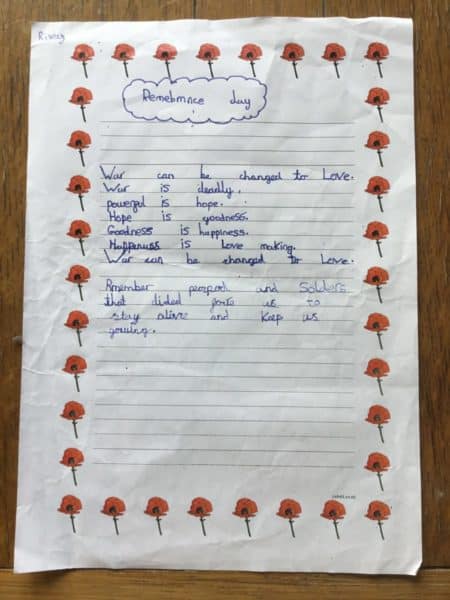
Additional Information. Interestingly, Field Marshal Montgomery, as well as being in command of all Allied ground forces during Operation Overlord (Battle of Normandy) among other things, commanded the British Eighth Army in the Western Desert from August, 1942 until the final Allied victory in Tunisia in May, 1943. According to Wikipedia, this included the Second Battle of El Alamein and the Allied invasions of Sicily and Italy. According
to my Uncle Mickey, my maternal grandfather, William (Bill) Mahoney, a
rifleman and driver (army number 7020337), fought in the Eighth Army under Montgomery against Rommel’s German Panzer (tank) division and then fought in Sicily and Italy. I’m slightly confused here because Wikipedia says the Panzers were involved in the First Battle of El Alamein and Montgomery wasn’t yet out there. I have a lot more learning to do! I have a note scribbled from a conversation with Uncle Mickey that says my Grandad Bill trained in Balleymoney in County Antrim, Northern Ireland. His online army record says he was a 2nd lieutenent in the Royal Artillery. I’m fascinated that two relatives, one from my paternal side and one maternal, came into contact with Field Marshal Montgomery.
Grandad Bill was from Fulham. His great grandparents, Dennis and Margaret, were from Cork in Ireland and escaped the Great Hunger (Irish potato famine) and made their way to London. Dennis and Margaret’s
son, also called Dennis, married Mary and they had a son called James who married a woman called Margaret (Meg) Edwards. Meg was a Romany Gypsy from Abergavenny who ran a rifle range on a traveling fairground. It seems likely that she met James Mahoney at a fairground, possibly Clapham Common, where he was a bare knuckle fighter. Meg and James had 18 children, one of whom was Grandad Bill. Grandad Bill married Nanny Jean Goldstein, a Jew whose heritage we sadly have been unable to trace (so far) since she was brought up in an orphanage. My mother, who was born a couple of months before the Second World War started, didn’t find out her mother’s maiden name until she was well into adulthood. Nanny Jean had been too afraid to tell her children that she was Jewish.
